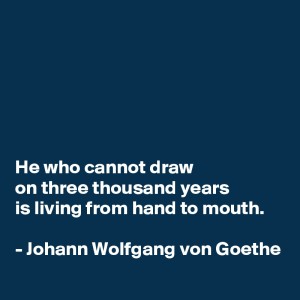How should we live? is a book subtitled Great Ideas from the Past for Everyday Life, written by Roman Krznaric. Sounds extremely cheesy, but thanks to a recommendation by Navid Modiri (I do believe) a year or more ago, I ordered the book, and it made the cut for my weekly-reading-challenge of 2018. Of that I am glad. Because I don’t find the book as cheesy as the title, not even close to it.
“The plague of divorce in the West is closely linked to the silences between couples, and in many families you can find relatives who refuse to talk to each other, often for days and sometimes for years. Conversation is the unseen thread that binds families together and it is time we took it more seriously.”
“For Socrates, conversation was a dialectical process in which the dance of ideas could help people inch closer towards their own personal truth.”
– From the chapter Family in the first section of the book.
Set up with four major sections – Nurturing relationships – Making a living – Discovering the world – Breaking conventions – each containing three chapters, with each chapter having at least three examples of great ideas from the past, this book has a lot of content – and it is a mix of facts and opinion, stories and advise, commentary about where we are at today and pointers on what might be instead, if only we start to experiment a bit more with life, with ample suggestions of what to experiment with.
“[…] we need to find ways of overcoming our fears and lack of self-confidence, which may be holding us back from taking action. […] Whatever strategies we try, we should endeavour to treat our working lives as experiments in the art of living, heeding the words of the nineteenth-century writer Ralph Waldo Emerson: ‘Do not be too timid and squeamish about your actions. All life is an experiment. The more experiments you make, the better. What if they are a little coarse, and you may get your coat soiled or torn? What if you do fail, and get fairly rolled in the dirt once or twice? Up again, you shall never be so afraid of a tumble.'”
– From the chapter Work in the second section of the book.
I am having serious problems limiting the number of quotes from the book. Without problems, I could surely write a blog post based on a quote from this book for every week of a full year, and still have pencil markings lest un-blogged about at the end of it – and one of the things I most appreciate about the book is the humorous undercurrent of it mixed with a sharpness that certainly cuts straight to the core.
“The greatest explorers have not been those who pushed back the geographic frontiers on colonial maps, but rather those who have travelled beyond the frontiers of their own prejudices and assumptions – whether they are based on race, class, gender or religion. A successful expedition is one which challenges and alters our worldview, liberating us from the narrowness of deeply ingrained beliefs that we have often unconsciously inherited from culture, education and family.”
– From the chapter Travel in the third section of the book.
As I read, I connect dots. Between books I’ve read before (for instance the one on Humboldt). Conversations I’ve had (including conversations on the book on Humboldt, as that was a book for my Gifted book club). Blog posts I’ve written, as well as those still left unwritten on thoughts that have yet to land, to solidify into words on paper.
 Bits and pieces click in place, making me feel like I’m at least starting to draw from those thousands of years, as Goethe suggests in the opening quote of the book.
Bits and pieces click in place, making me feel like I’m at least starting to draw from those thousands of years, as Goethe suggests in the opening quote of the book.
“One form of belief is the idea that our nation is superior to others in particular ways, such as cultural achievements, natural beauty or sporting prowess. Australians much believe they have the best food in the world – but so do the French, Italians, Spanish, Peruvians and Chinese. George Bernhard Shaw recognized the absurdity of it all when he noted that ‘patriotism is your conviction that this country is superior to all other countries because you were born in it’.”
– From the chapter Belief in the fourth section of the book
I finished reading this book three days ago. And already, as I flick through it in search of suitable excerpts for this blog post… an itch starts within. I want to reread this book. And I could start already today, really. The only thing hindering me is the fact that it’s time for me to finally put my friend Caspian out of his misery, but reading the one book he’s been ordering me to read for quite some time now. So I won’t. Reread this book. Now that is. Because reread it I most certainly will!
The book I am blogging about is part of the book-reading challenge I’ve set for myself during 2018, to read and blog about 26 Swedish and 26 English books, one book every week, books that I already own.